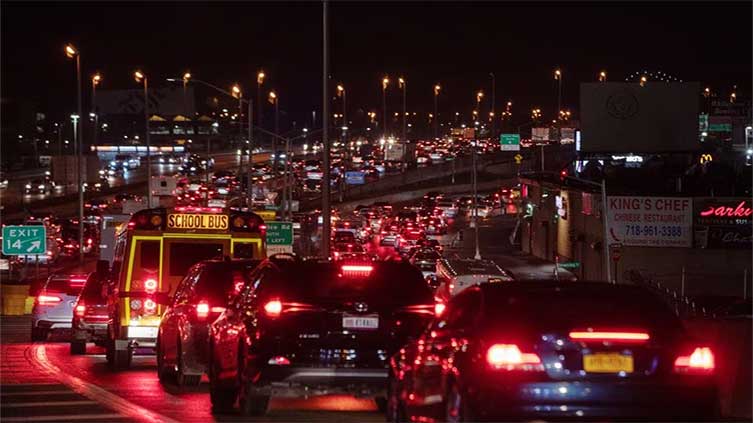US proposes raising vehicle fuel economy standards to 58 miles per gallon by 2032

Business
The proposed 2027-2032 standards would cut emissions by 56% or 13% annual average pollution
WASHINGTON (Reuters) - The Biden administration proposed to hike fuel economy standards by 2032 to a fleet-wide average of 58 miles per gallon as it seeks to cut greenhouse gas emissions and reduce fuel use.
The National Highway Traffic Safety Administration (NHTSA) proposal, which covers the 2027 through 2032 model years, would boost Corporate Average Fuel Economy (CAFE) requirements by 2% per year for passenger cars and 4% per year for light trucks.
The agency is also proposing new fuel efficiency standards for heavy-duty pickup trucks and vans for 2030-2035 rising 10% per year.
NHTSA in 2022 finalized rules for 2024-2026 requiring a fleet average of 49 mpg by 2026. The rules boosted efficiency requirements by 8% in 2024 and 2025 and 10% in 2026.
The agency's new proposal would save 2032 vehicle owners about $1,043 per vehicle in lifetime fuel costs, while increasing average vehicle costs by $932.
NHTSA says the rule "will encourage manufacturers producing (internal combustion engine) vehicles during the standard-setting timeframe to achieve significant fuel economy, improve energy security, and reduce harmful pollution by a large amount."
CAFE requirements are not as stringent as an Environmental Protection Agency proposal in April to cut vehicle tailpipe emissions. NHTSA is barred by law from considering electric vehicles fuel economy in setting standards.
The EPA said its proposed 2027-2032 standards would cut emissions by 56%, or 13% annual average pollution cuts and result in 67% of new vehicles in 2032 being electric.
NHTSA estimates its proposal would cut gasoline consumption by 88 billion gallons through 2050.
NHTSA wants comment on five alternatives, including not hiking requirements to raising them annually by 6% for cars and 8% for light trucks. The agency said its preferred alternative "comes at a cost we believe the market can bear without creating consumer acceptance or sales issues."
The Alliance for Automotive Innovation representing General Motors, Toyota Motor, Volkswagen and others, asked EPA to soften its emissions proposal saying it is "neither reasonable nor achievable," while Tesla said EPA should make it tougher. The alliance Friday said it was reviewing NHTSA's proposal.

